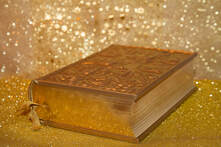
Before another pair of eyes reads through your manuscript, proofread it yourself for technical writing errors. Specifically, there are five mistakes almost every writer makes that you can fix before your book hits the editing process.
CLICHÉS
Old habits may die hard, but clichés will clutter your writing. Clichés are dog tired; readers will look over them and miss the good content underneath. Try starting your own clichés. Create fresh similes, metaphors, and idioms.
WORD REPETITION
Have you read a book and noticed the author repeated a certain word throughout it? Many authors have a crutch word they consistently use. Check for your own crutch word and use a thesaurus to diversify your manuscript’s vocabulary.
TOO MANY ADVERBS
You have probably heard to “show, not tell.” Cutting out adverbs can help you do this. Adverbs like quickly, very, and incredibly can be written out with more visual descriptions put in their place. Instead of writing “Incredibly, the runner ran very quickly,” write, “The runner was a speeding bullet. Her feet pounded the ground and propelled her forward as she sped ahead of the others.”
COMMAS
When concentrating on developing your story and perfecting your message, your commas might get misplaced. Ask yourself the following questions to make sure commas are where they need to be.
- Do you have commas inside quotation marks? For example, this is incorrect: "Hello" she replied. This is correct: "Hello," she replied.
- Do you separate modifying clauses with commas? For example, this is incorrect: Sally a very polite girl held the door open. This is correct: Sally, a very polite girl, held the door open.
- Are introductory clauses separated by a comma? For example, this is incorrect: If she wants ice cream she should ask her brother. This is correct: If she wants ice cream, she should ask her brother.
- Are you consistent with how you use commas in lists? For example, all lists could have a comma after the last word before "and," like this: I like chocolate, vanilla, and strawberry. All lists could also go without the comma after the last word before "and," like this: I like chocolate, vanilla and strawberry. Both are correct as long as they're used consistently.
Technical grammar problems
Comma mistakes are common, but there are other grammar errors authors make when writing their manuscript. Here are a few grammar mistakes that come up frequently:
- Vague pronouns make writing easier, but can be confusing to readers. When proofreading, make sure you can attribute every pronoun to the noun it describes.
- Its/It’s, than/then are commonly confused because most word processors can’t catch them if they’re used in the wrong context. If you need a quick refresher, “Its” shows possession and “It’s” is the contracted form of “it is.” “Then” shows a progression, while “than” is used for comparisons.
- Sentence fragments and run-ons can also be hard to catch. Make sure each sentence has a subject and verb, but doesn’t use “and,” “but”, and “or” to link sentence after sentence.
If you want a professional to help you perfect your writing, contact Purpose Publishing at www.PurposePublishing.com
To your Success,
MG.




 RSS Feed
RSS Feed
